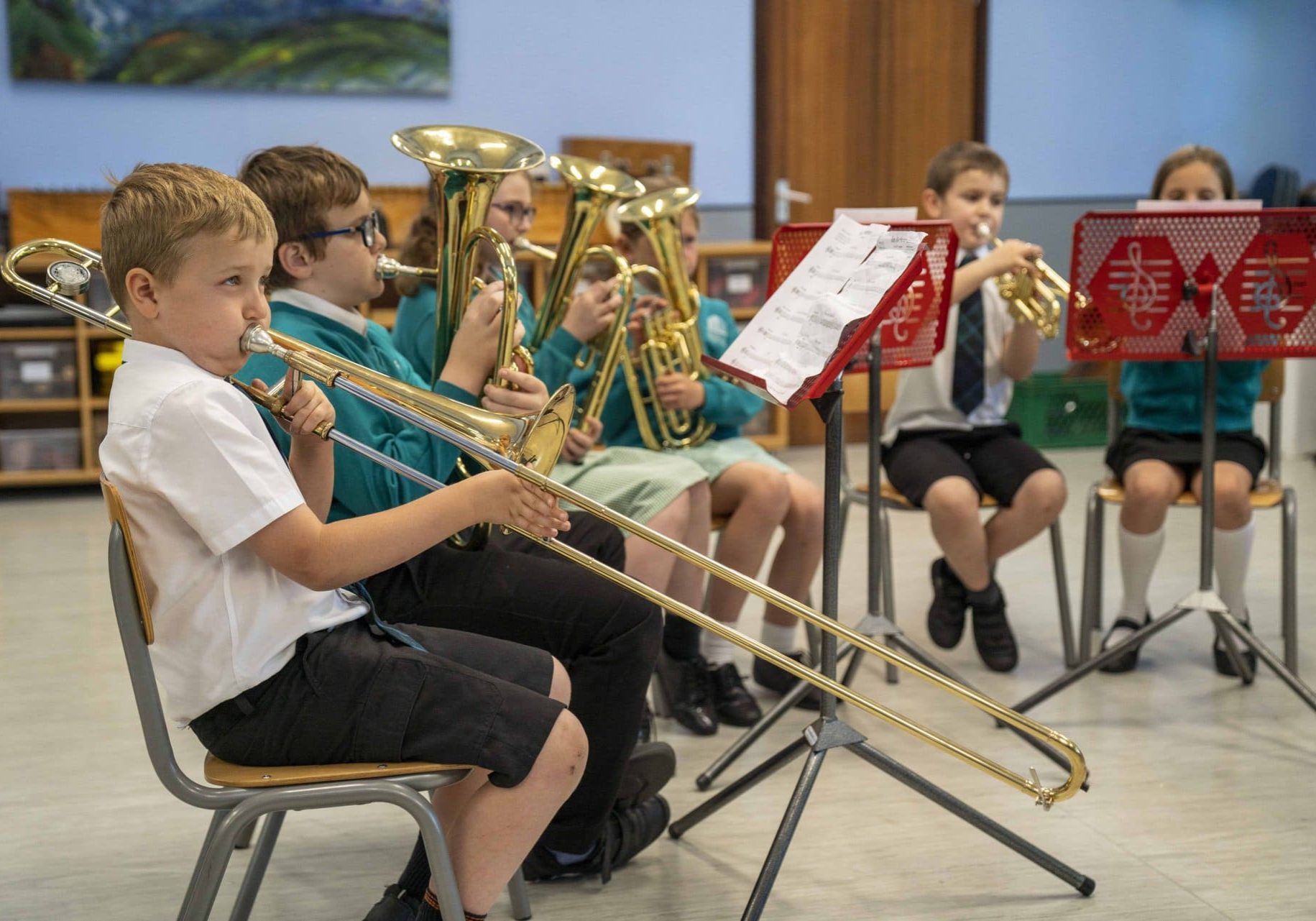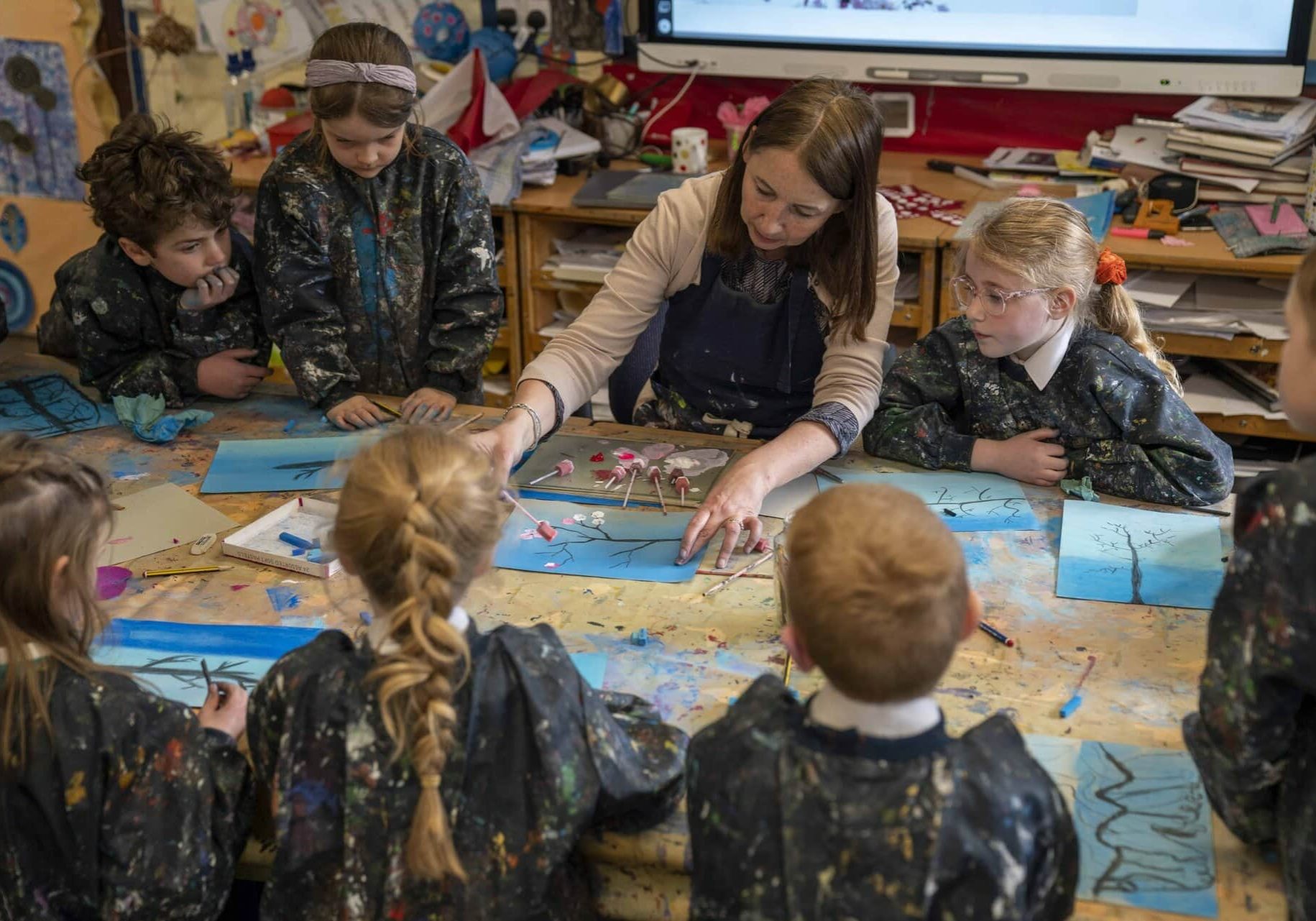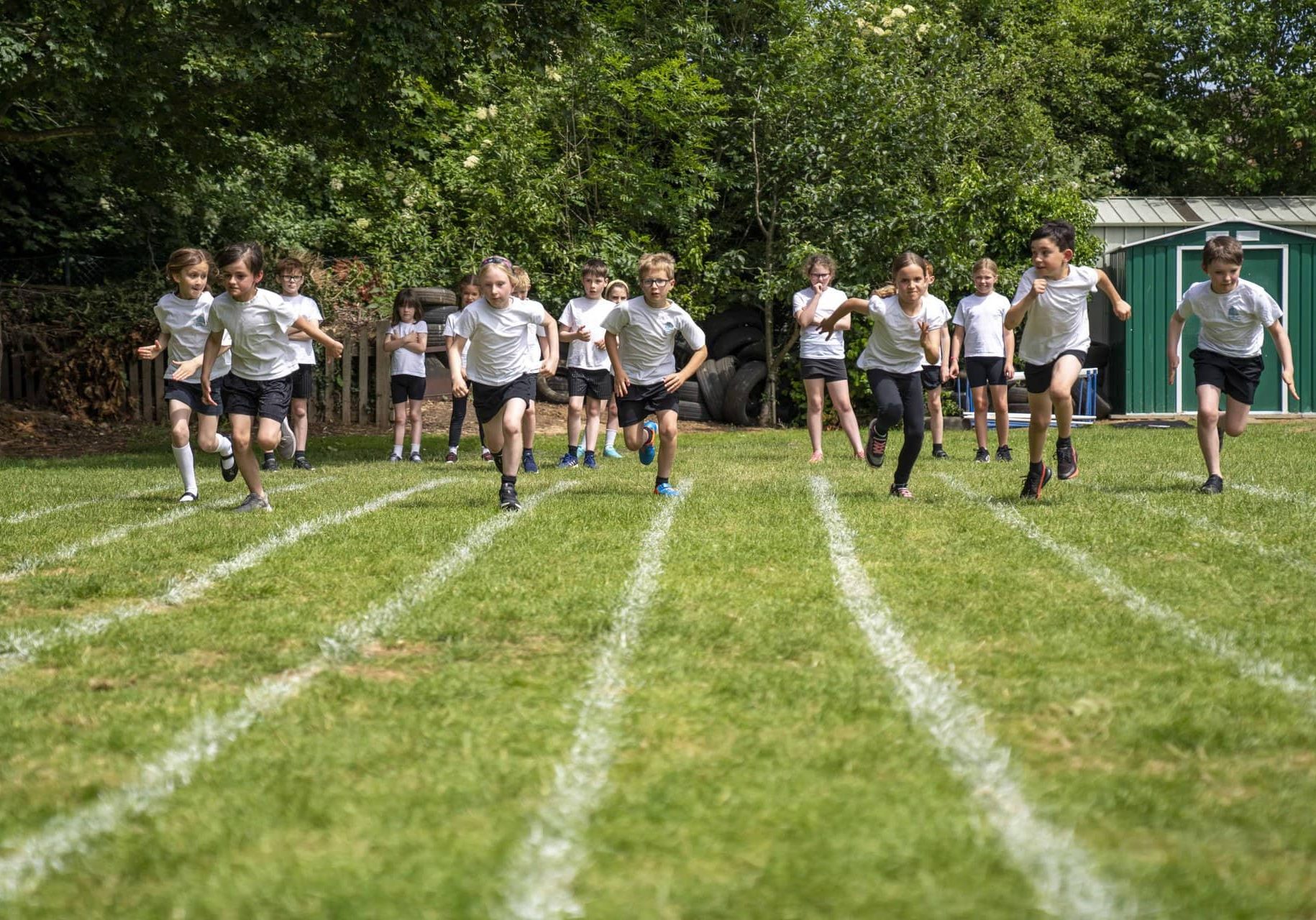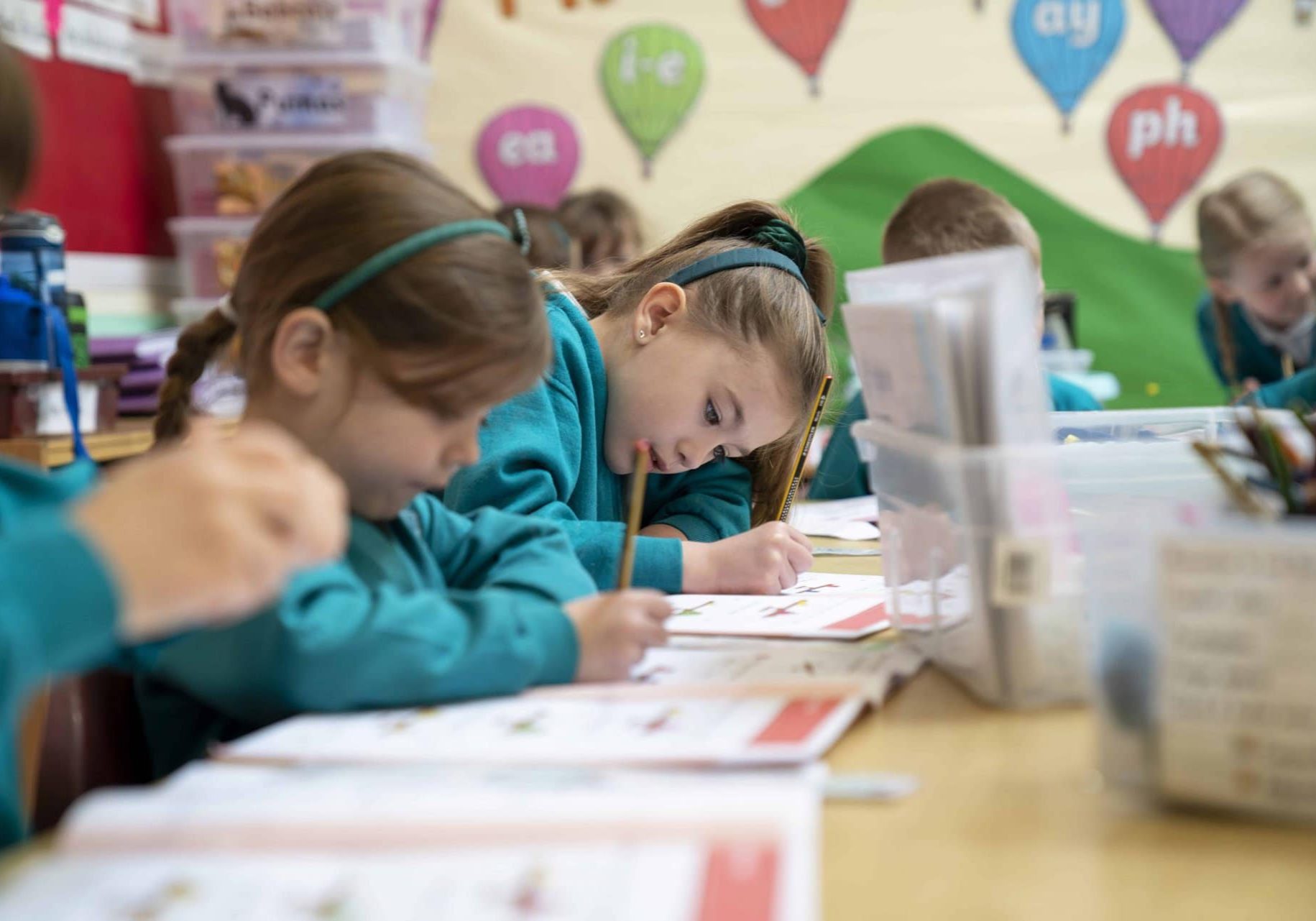In This Section
Maths
'In Maths, the journey is as important as the destination.' - Unknown
Curriculum Intent
Mathematics is an important creative discipline that helps us to understand and change the world. We want all pupils at Nicholas Hawksmoor Primary School to experience the beauty, power and enjoyment of Mathematics and develop a sense of curiosity about the subject with a clear understanding.
At Nicholas Hawksmoor we foster positive ‘can do’ attitudes and we promote the fact that ‘we can all do Maths!’ We believe all children can achieve in Mathematics and teach for secure and deep understanding of mathematical concepts through manageable steps. We use mistakes and misconceptions as an essential part of learning and provide challenge through rich and sophisticated problems.
At our school, the children will spend time becoming true masters of content, applying and being creative with new knowledge in multiple ways. We believe a pupil really understands a mathematical concept, idea or technique if they can describe it in their own words; represent it in a variety of ways; explain it to someone else; make up their own examples (and non-examples) of it; see connections between it and other facts or ideas; recognise it in new situations and contexts and make use of it in various ways, including in new situations. Our curriculum is designed to reflect our school ethos of quality, enthusiasm, and partnership.
In alignment with the National Curriculum Objectives for Mathematics, we intend for all pupils to:
- Become fluent in the fundamentals of mathematics through varied and frequent practice with increasingly complex problems, developing conceptual understanding and the ability to recall and apply knowledge rapidly and accurately.
- Reason mathematically by following a line of enquiry, conjecturing relationships and generalisations, and developing arguments, justifications, or proofs using mathematical language.
- Solve problems by applying mathematics to a variety of routine and non-routine problems, breaking them down into simpler steps and persevering in finding solutions.
Mathematics at Nicholas Hawksmoor is an interconnected subject where pupils learn to move fluently between representations of mathematical ideas. While the curriculum is organised into distinct domains, pupils make rich connections across mathematical ideas to develop fluency, mathematical reasoning, and competence in solving increasingly sophisticated problems. They also apply their mathematical knowledge to other subjects, including science.
Central to our approach are the 5 Big Ideas that underpin mastery in mathematics:

National Curriculum for Mathematics
NHPS THLT Maths Progression Document
WRM Addition & Subtraction Calculation Policy
WRM Multiplication & Division Calculation Policy
NCETM Mastering Number Reception Overview
NCETM Mastering Number Y1 Overview
NCETM Mastering Number Y2 Overview
Implementation
We ensure that the Teaching for Mastery approach (coherence, variation, mathematical thinking, careful use of representations and structures) is fully embedded in our Maths teaching. Our progression framework (taken from White Rose Maths) ensures that skills and knowledge are built on year by year and sequenced appropriately to maximise learning for all children. Maths lessons are broken down into small, sequenced learning steps that gradually expose the mathematical concept; ensuring learning is accessible to all children. We use varied concrete, pictorial and abstract representations alongside each other to carefully expose the mathematical structure and ensure our children can move flexibly between different representations and mathematical ideas. Each lesson provides opportunities for the children to reason and solve mathematical problems. Challenge is visible throughout the whole session, where children are asked to reason and prove their understanding at a deeper secure level.
Hallmarks of our Mastery Approach
- Concrete, Pictorial, and Abstract Learning: Pupils engage with a wide range of concrete manipulatives, pictorial representations, and abstract methodologies in each session. This approach is fundamental for all learners, not just those with special educational needs and disabilities (SEND).
- Do it! Twist it! and Deepen it!: Fluency, Reasoning, and Problem Solving. Every session includes opportunities to develop fluency, construct reasoning chains using relevant knowledge and terminology, and solve complex problems systematically.
- Mathematical Vocabulary: Sessions include explicit references to vital mathematical vocabulary and the use of stem sentences to support pupils in communicating their ideas with precision.
- Interleaved Learning: To ensure frequent revisiting of concepts, we deliver flashback sessions in every lesson and at other points in the school day, such as morning work.
- Fluent Recall: We ensure pupils secure their knowledge of times tables and related division facts by the end of Year 4 through regular low-stakes testing and practice.
Impact
We expect that the majority of pupils will progress through the programmes of study at a similar pace. Our goal is for each child to be confident in yearly objectives, developing a deeper understanding to solve varied fluency problems, as well as problem-solving and reasoning questions. Pupils who grasp concepts rapidly are challenged with sophisticated problems before moving on to new content, while those needing more time consolidate their understanding with additional practice.
Assessments
- Formative Assessment: Teachers use assessment for learning in each session, providing feedback verbally, through self/peer assessment, and marking. This then informs planning and intervention opportunities.
- Timely Interventions: Teachers believe in the potential for all pupils to achieve in maths and focus on whole-class teaching. Interventions are provided based on formative assessment, including post-teaching and pre-teaching as needed.
- Low Stakes Quizzing and Fluent Recall: Regular low-stakes testing assesses attainment and progress, with opportunities to consolidate and revisit prior learning through homework platforms.
- Summative Assessments: End of unit assessments for each unit further inform planning and intervention groups. Our assessment calendar includes key dates for capturing progress and attainment against National Curriculum Objectives.
Early Years Foundation Stage (EYFS)
In our Early Years Foundation Stage (EYFS), we prioritize early mathematical experiences, focusing on establishing a strong foundation in number skills. We utilize the Mastering Number programme to systematically teach essential skills, ensuring a seamless transition to the National Curriculum in Year 1.
The primary Early Learning Goals (ELGs) for mathematics are:
ELG Number
- Develop a deep understanding of numbers up to 10, including the composition of each number.
- Subitise (recognise quantities without counting) up to 5.
- Automatically recall number bonds up to 5 (including subtraction facts) and some number bonds to 10, including double facts.
ELG Numerical Patterns
- Verbally count beyond 20, recognizing the pattern of the counting system.
- Compare quantities up to 10 in different contexts, identifying when one quantity is greater than, less than, or the same as another quantity.
- Explore and represent patterns within numbers up to 10, including evens and odds, double facts, and how quantities can be equally distributed.
Our teachers design creative and engaging opportunities that spark children's curiosity and enthusiasm for mathematics. The focus is on the three prime areas: Communication and Language, Physical Development, and Personal, Social, and Emotional Development (PSED). Activities and experiences are diverse and frequent, allowing children to build upon and apply their understanding of numbers up to 10. Sessions emphasize the use of concrete manipulatives and pictorial representations such as Tens Frames and Part/Whole Models. Children are encouraged to use mathematical terminology, fostering positive attitudes and interest in the subject.
Additionally, our curriculum provides rich opportunities for children to develop spatial reasoning skills across all areas of mathematics, including shape, space, and measures. It is crucial for children to develop positive attitudes towards mathematics, seek patterns and relationships, make connections, experiment, discuss observations with adults and peers, and embrace mistakes as learning opportunities. We offer various opportunities for exploring spatial reasoning and explicitly teach these concepts to provide a solid foundation for Year 1.





